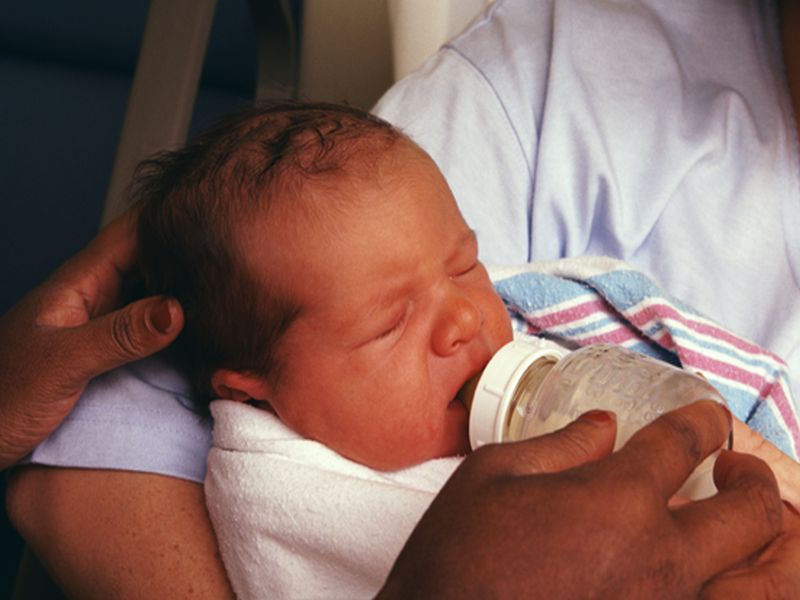Few Days of Formula Feeding After Delivery Won't Harm Breastfed Babies

MONDAY, June 10, 2019 (HealthDay News) -- If your newborn is breastfeeding and losing weight, will feeding her formula do any harm?
Though doctors have long advised against it, a new study suggests giving baby both formula and the breast is OK.
Researchers said the answer depends on how long a mother intends to breastfeed and it needs to be balanced against the risks newborns face when their weight is dropping more than normal.
"Counseling that implies all formula is harmful would be inaccurate and may be detrimental to long-term breastfeeding success," said the study's first author Dr. Valerie Flaherman. She is a pediatrician at the University of California, San Francisco.
"Our study's results show that early, limited formula may have significant benefits as well as risks for subsequent breastfeeding duration," she added in a university news release.
The American Academy of Pediatrics recommends that mothers exclusively breastfeed until their babies reach 6 months of age, then continue while transitioning to solid food at 12 months.
But when a breastfed newborn loses more weight than normal in the first days of life, many parents wonder if they should supplement mother's milk with formula.
The new study tracked the feeding habits of 164 babies born at one hospital in California and one in Pennsylvania.
All were breastfed between day one and day three of life, and all were of above-average weight. Half the mothers also gave them syringe-fed formula for two to five days. The others continued to breastfeed exclusively.
Investigators then tracked mothers and babies to see whether mixing in formula for a few days to combat weight loss affected breastfeeding rates down the road.
The results were mixed. By 6 months of age, infants who received formula at birth were just as likely to be breastfed as those who hadn't. But the formula-fed group was less likely to still be breastfeeding at 12 months, the study found.
That's not surprising. About one-third of U.S. babies breastfeed at 12 months, according to the U.S. Centers for Disease Control and Prevention.
"The results suggest that using early, limited formula may not have a negative impact on infants, but it may alter maternal attitudes toward breastfeeding," Flaherman said.
If formula is used during the first few days after birth to tackle weight loss or dehydration, she added, "it should be discontinued as soon as possible, since ongoing use at one week of age indicates a mother is at high risk of early breastfeeding cessation."
Flaherman and her colleagues reported their findings in the June 3 issue of JAMA Pediatrics.
More information
For more about breastfeeding, visit the American Academy of Pediatrics.

The news stories provided in Health News and our Health-E News Newsletter are a service of the nationally syndicated HealthDay® news and information company. Stories refer to national trends and breaking health news, and are not necessarily indicative of or always supported by our facility and providers. This information is provided for informational and educational purposes only, and is not intended to be a substitute for medical advice, diagnosis, or treatment.

